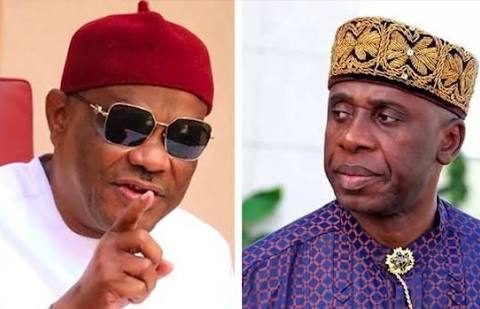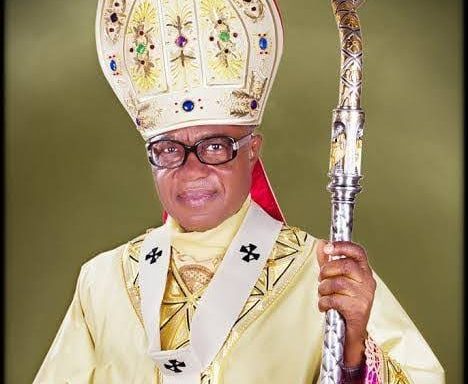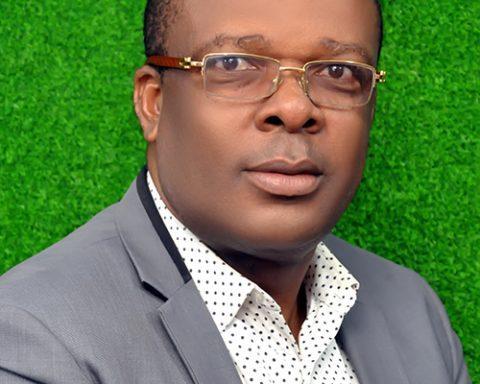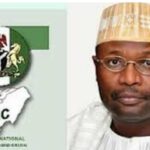The line between hope and hopelessness in Nigeria is so badly blurred that it is now imperceptible. For most Nigerians, life is now ‘solitary, poor, nasty, brutish and short’, making the end of hope an existential reality. Living in contemporary Nigeria exposes that personal and national fates are unambiguous. Nigeria’s national disposition connotes the end of hope. That disposition is real, blatant, concrete and hard felt.
A shared value most Nigerians reflexively subscribe to nowadays is the canticles of hopelessness that pervade the land. As never before, Nigerians have lost hope in their country. This is a very dangerous juncture for any country to be. A haunted nation risks implosion. The nation’s swirling and cascading challenges are robust and overt, yet the inherent clear and present danger pivots from the anesthetizing uncertainty, as to whether the Nigerian citizens should prepare for a seven-point-scale earthquake or an all-consuming tsunami. This Catch-22 situation suggests that, in the present circumstance, heads or tails, Nigerians lose.
Join our WhatsApp ChannelNigeria remains a constitutional democracy. But precepts have since overtaken democratic practices. These days in Nigeria, there are missing praxis between theoretical democratic governance and the practice of democratic governance. What this portends is the stark failure of democratic institutions and to wit; the combined diminution of ordered liberties and State failure, arising from undeniable leadership hubris. More troubling, perhaps, is the unequaled scope of State Capture that is still unfurling.
READ ALSO: Ambassador Obaze Raises The Alarm Over Fake, Underage Voters In INEC’s Record
Hope remains a shared commonality inherent in human nature; the social strata, nomenclature, or civic acculturation of a person notwithstanding. And regardless of a citizen’s exposure, education, affluence or indigence, hope is and ought to be the universal currency that permeates mankind. Yet, in their daily wake and work, for most Nigerians, while hope in God persists, hope in the nation and for the nation is progressively waning. In this avowed era of “renewed hope” there is, ironically, a glaring dearth of hope. Many situations feel hopeless.
This is Nigeria’s woke moment. Nigeria is in disarray. Of that there is no longer any debate. But the deniers persist. In our woke democracy, the courts are no longer the last hope of the common man. Our courts incrementally dispense justice with fear and favour. So we have become a nation where justice is routinely procured, if the price is right. In government circles, official malfeasance and grand larceny are rife and hardly attract any reprisals.
What then is the magic wand that still keeps Nigeria safe from fragmentation? Simply, it is that inextricable connection between hope, and what some call luck or fate. That nexus is further anchored on human expectations in any ordered society or democratic dispensation. Such expectations are in turn, vested in statutory promises and rights embedded in the Constitution that guides governance and on the flip side, by laws of social order and natural justice.
Ancillary to these promises and ordered liberties are inalienable rights and privileges that any working society imbues on her citizens. Above all, there is that hope that there exist a few good men with messianic potentials to save a sinking ship, a collapsing building or an imploding nation. But they will act and succeed in the national interest, if only they can seize the moment.
READ ALSO: Tinubu Needs Strong Executives Not Cronies, Minions To Implement Oronsaye Report – Obaze
More often than not, citizenship prerogatives are aligned with patriotism, where the society does well to promote and protect citizen’s rights; and in return, expects citizens to be upright, diligent and patriotic, without undue exhortations or coercion. The sum total is that strict adherence and respect of the rule of law applies to the state and citizens alike. Such shared responsibility underpins the social contract between state leaders and citizens. Absence of these values, as is now the case in Nigeria, has inevitable consequences.
Hope dies progressively. Absence of trust diminishes hope. For nations, unmet needs and unfulfilled promises further erode hope. Glaring iniquities, disenfranchisement and discontent emaciate hope. It is this trajectory that leads to restiveness, anarchy and revolution in hobbled nations. Failure is a gradual process. For any government, the first line of defense of citizens’ rights is the responsibility to protect. This is also the first line of defense against malgovernace and the resultant chaos. In this regard, the Nigerian APC-led government has failed woefully. Poverty, hunger, insecurity and hopelessness have since made democratic reforms and saving Nigeria from the APC government the national cause célèbre.
The broad swath of ungoverned spaces, the internecine violence, unending bloodletting, insecurity, poverty and hunger in Nigeria are no longer emblematic; but sad and real life realities. Corruption, lack of accountability and willful disregard for due process compound existing national challenges. Chaos is no longer imminent. Chaos is already here. The increasing civil disobedience and spontaneous public protestations against some national leaders, their cohorts and spouses, are hot-button indicators. Our present leaders ignore such signals at their own peril. One such unscripted episode could easily become the tipping point, catalyst, or rallying point for Nigerians to collectively vent their long-suppressed anger via mass protests and unrest.
READ ALSO: Nigeria: We Need A Leader With Transformative Mindset – Amb. Obaze
Unquestionably, hope ends, when government becomes absolutionist and its Orwellian tendencies manifest. Presently, several discernible leadership and governance variables point to Nigeria’s dangerous drift and continual segueing towards Orwellian diktats. These are normative and real concerns. With the political opposition being emasculated, coerced and co-opted, Nigeria is progressively adrift toward one-party state and authoritarianism. A corollary is the emergence of rogue and false leaders in the three arms of government and every segment of the society becoming attuned –predisposed or prepurposed–towards a singular mandate value. These partisans promise hope and change, but only seek power.
Secondly, there is an egregious complicity arising from the dangers of unfettered silence in the face of equally egregious unfurling national injustice. Methodically, Nigeria’s history is being revised and manipulated, not so much in the national interest but to suit sectional, and ethnic narratives aimed to enhancing political gains and overreaching personal benefits. Suddenly, we have become a nation without ideations and ideologists, where crass precept-driven politics is the preferred norm above everything else.
READ ALSO: Tax Reform Bills: Why Authorities Must Integrate Technology In Tax System– Expert
Thirdly, it is most fear-provoking that those who once coveted the role of being the nation’s conscience have suddenly become catatonic in deference to primordial considerations. Safe for a few like of Dele Farotimi, Chidi Odinkalu, Usman Yusuf and Femi Falana, the rest are suddenly bereft of the gumption to speak truth to power. Contextually, Chief Emeka Anyaoku recent warning that Nigeria risked disintegration, without federal reform and restructuring ought not to be ignored even as such prognoses have for long been commonplace.
Finally, power of vile propaganda is in full display. Groupthink, doublethink, doublespeak now drives nepotism and political trolls. Nigeria’s most corrupt are all scampering into the ruling APC government for shelter. Some defect, some are invited and some are coerced. This is a testament that “absolute power corrupts absolutely.” Perhaps there’s honour amongst thieves. That’s the state of our hopelessness. It is this national miasma that elicits the canticles of hopelessness that is drowning out rigorous debates, policy reforms, and the political opposition’s robust dissent, while elevating leadership hubris to an unprecedented level.
The APC will most probably seek to continue wielding power after 2027, but institutionally, it is far too rotten to the core to provide the redemptive governance Nigeria urgently requires. Regrettably, the APC-led government has, with deft political engineering infested the opposition PDP and LP with malign leadership crises that makes them feeble. Without aligning with other pro-democratic forces, neither PDP nor LP can individually oust the APC from power in 2027. Just the thought is simply scary. If this scenario and our overall national circumstances don’t give us pause; I don’t know what will. Meanwhile, we watch and wait.
——-
Obaze is MD/CEO, Selonnes Consult – a policy, governance and management consulting firm in Awka.








